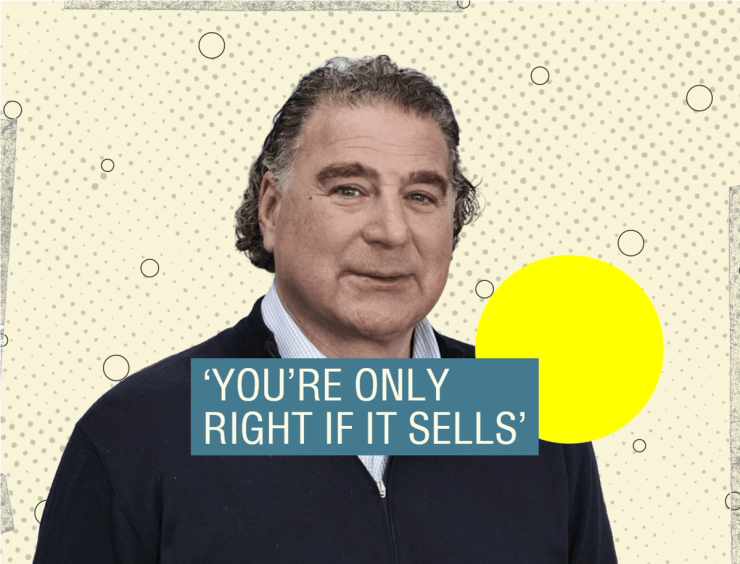The Signal Insight
When Irwin Simon got into the cannabis business, he wasn’t a user of its products. But he saw an opportunity in consolidating a fragmented industry and “legitimizing” the drug. “I’m someone who’s a visionary,” the Tilray Brands chairman and CEO says.
Combining Aphria and Tilray in 2020 realized the first of his goals, creating one of the world’s largest cannabis companies by revenues. Achieving the second has proved tougher: 24 US states have legalized cannabis for recreational use, but it is still classified at the federal level as a Schedule I drug, alongside heroin and LSD.
The $28 billion industry has stepped up its lobbying, and its hopes briefly rose after President Donald Trump shared a social media video seemingly endorsing CBD’s medical benefits. But a provision in the spending bill that ended the US government shutdown this month effectively banned many hemp-derived THC products, a provision Tilray called “misguided” and “prohibitionist.”
Simon has hedged against US restrictions by diversifying. Already the cannabis market leader in Canada, Tilray has become the fourth-largest craft beer brewer in the US and moved into “wellness”-themed food — an industry he knows from having founded the organic foods group Hain Celestial in the 1990s.
Tilray’s share price has fallen more than 95% from its 2021 peak to dip below $1, and its $1 billion market capitalization is only slightly above last year’s $821 million revenues. But Simon points to a balance sheet with $265 million of cash and barely any debt as a reason to project confidence.
He would have been in trouble if the business had been heavily leveraged, he says, “because debt is debt, and it can be death too.” But, he argues, if the US regulatory climate changes in his favor, “the pieces are in place to really explode. If they don’t, I’ve still got a billion-dollar business, I’ve still got a strong balance sheet, [and] I’ve got products that Gen Z and millennials want.”
This interview has been edited for length and clarity.
Andrew Edgecliffe-Johnson: You’ve got a sort of binary bet on the future of cannabis: Either there’s no deregulation in the US, or there is, and you’re off to the races. How does that affect how you operate the business?
Irwin Simon: Cannabis is legal in Canada, so I know I will grow that business. My drinks business in Canada today is only sold in cannabis stores. If I could sell them in restaurants, that could change. My medical cannabis today is only sold either in clinics or online. If I could sell it into drug stores, that would change. And then, last but not least, there’s the illegal market: More and more consumers will stop buying from that illicit market and move over to the legal market because they know the quality, pricing, etc. So I’m a believer that some of these things — maybe not all of them, but one or two of these — will work for us.
How do you keep people motivated when the stock falls below $1?
You tell them, “We’re not in financial trouble, we’re in stock trouble.” You’ve got to go out there and sell the growth [story], and that ultimately we’ve got the balance sheet to be able to plow through that. But you’ve got to communicate, and not be stuck on hold. There are stocks out there, some of these AI stocks, that don’t have free cash flow, that don’t have a strong balance sheet, and they’ve got a high stock price. The stock price doesn’t ultimately always tell the story.
What are the most important consumer trends that you’re playing into?
No. 1, it’s not [that young] people are not drinking today. They’re drinking less. Because a glass of wine or a shot today or a beer, where it was $6, it’s now $9 or $10. So instead of having three or four, they’re having one or two. From my standpoint, beer is not going away. My kids would never drink Bud Light; they’re not drinking my father’s beers. And other than Sam Adams [producer] Jim Koch, no one has gone out there and revolutionized the craft beer business. And I think I can do that. How do I make beer fun again? That’s what I’m trying to do.
So you’re experimenting with packaging and branding?
And drinks infused with hemp. [Established brewers] would not do these things.
But you think they’re wrong and you’re right?
You’re only right if it sells. Don’t try to change the consumer. Sell to what the consumer wants.
There was an expectation that we would see rapid deregulation once the Trump administration came into office. Why do you think we’ve not?
There [are] a lot of other things that have taken precedence. But Trump has come out and said rescheduling is something that should happen. My personal belief is they’ll reschedule cannabis from Schedule I to a Schedule III, because today it’s scheduled the same as cocaine or heroin. [I think they] have to, because the majority of the population has cannabis legalized in their state. You can say what you want about Canada, but it’s contributed billions of dollars in excise taxes. So from a Trump standpoint, it’s not that he’s a drinker or a smoker or a cannabis user, but he has come out and been very clear from a regulatory standpoint. Regulating it, there’s tax dollars, and there’s also a lot of good research out there that shows the medical benefits of cannabis [for treating] epilepsy, pain, anxiety.
What access have you had to the administration to make this case?
We have access through lobbyists and stuff like that. But I am not, to be very clear, going to the White House and presenting to Trump or anybody in the administration personally, not at all. I don’t think there’s one person that will get it there, and there’s a lot of other cannabis companies out there. We should try and do it together. Listen, I wouldn’t pay a million dollars to remodel his ballroom. I don’t believe in those things, [they’re] not fair to my shareholders. But it’s [about] getting the right messaging across and having the research behind it.
It seems there are a lot of other drugs in competition with cannabis. Everybody’s trying to find the next thing, whether it’s an Ayahuasca retreat, or peptides, or whatever. Do you feel that?
There’s more competition, 100%. But cannabis is my bread and butter, and I’ve got to make sure what I think can be legalized first. It will be cannabis, but psychedelics [may be] right behind it, and I’ve got to make sure I’m dipping my toe in the water. I can’t sell [psychedelics] because it’s not legal, [but] we’re doing some testing.
Is your thinking that, once psychedelics become legalized or rescheduled, you have the branding expertise and distribution?
I’ve got a start on something, and I’m ahead of it. I never like to be behind. You’ve got to utilize the knowledge base within the whole company, not within just the silos. If medical cannabis is legalized in the US tomorrow, I could take my knowledge base in Canada, my knowledge base in Europe, my grow, my strains, and be here, set up quickly.
It’s not easy. It’s not like I’m making a can of soup. It’s not like I’m making a bag of potato chips. I’m doing something really difficult, and there’s a lot that needs to happen. I’m dealing with a lot of regulatory [constraints], and I answer to a lot of authorities out there. I’m a public company too, so I’ve got to report numbers… and I’ve got multiple shareholders, so there’s a lot I have to answer to. And I’ve got to answer to a God.
Notable
- The provision in the shutdown bill prohibits products containing more than a certain amount of THC, the psychoactive compound in cannabis and hemp, per container. One economist estimated that it could put 300,000 jobs at risk, while another industry CEO called it an “extinction-level event” for the CBD products business. Tilray says it will experience no “material revenue impact.”
- Tilray told investors in a presentation this week that it had evolved from a pioneering cannabis company to “a transformative force at the nexus of cannabis, beverage, wellness, and entertainment,” whose largest market opportunity is in the drinks business.


